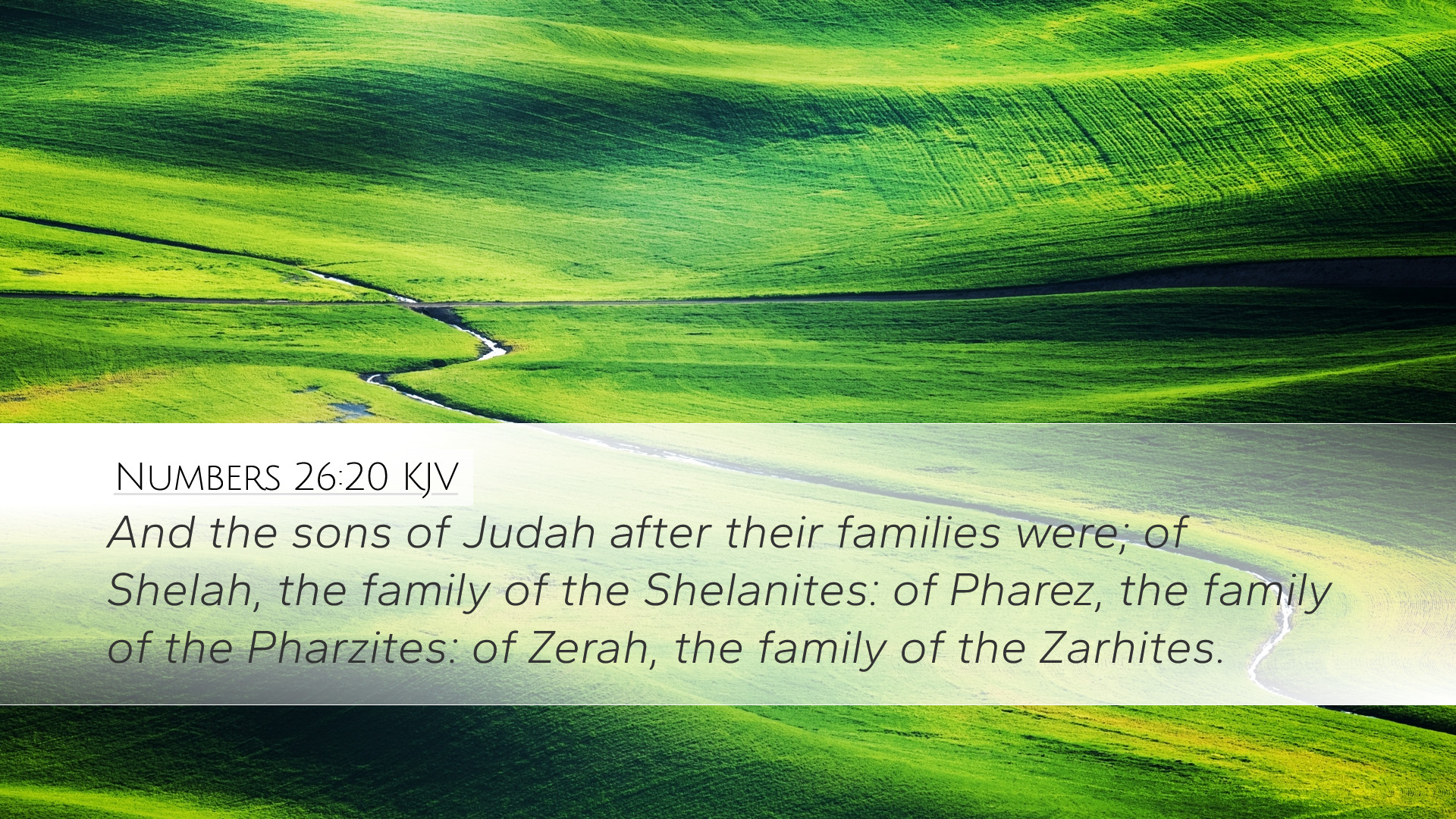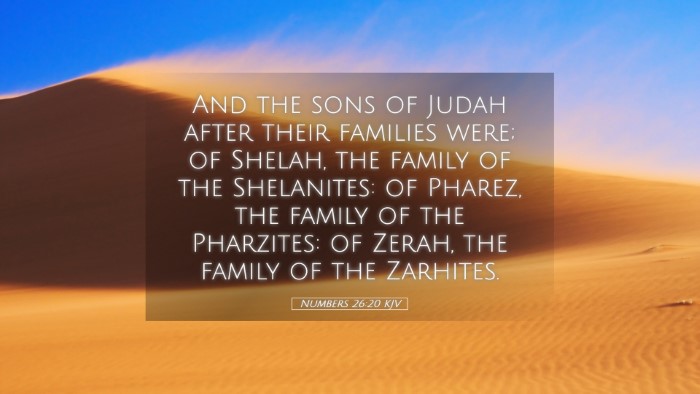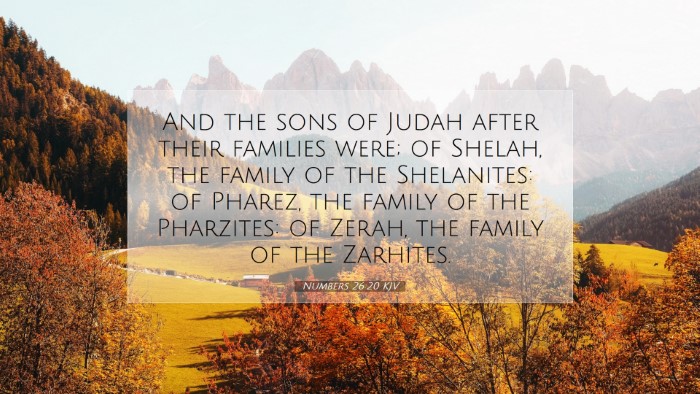Commentary on Numbers 26:20
Numbers 26:20 states: "And the children of Judah after their families were: of the Shelanites, the family of the Shelanites: of the Pharesites, the family of the Pharesites; of the Zerahites, the family of the Zerahites."
Context and Overview
This verse is part of the census conducted by Moses and Eleazar the priest, as ordered by God. It serves several purposes: it accounts for the tribes of Israel, it prepares for the allocation of the Promised Land, and it emphasizes the continuity of the genealogy and family structures within the tribes.
Historical Significance
The census is an important aspect of Israel’s history as it delineates the families and the structure of the tribes. Matthew Henry notes that such listings were necessary for military organization and territorial assignments. The families mentioned here—Shelanites, Pharesites, and Zerahites—indicate the subdivisions within the tribe of Judah, which is significant because Judah was often seen as the leading tribe from which the monarchy would descend.
The Tribe of Judah
- Leadership Role: As indicated in Genesis 49:10, the scepter would not depart from Judah, suggesting a royal lineage that impacts the future of Israel.
- Messianic Prophecy: Jesus Christ is often identified with the tribe of Judah, fulfilling the prophecy of Genesis and establishing a lineage of spiritual kingship.
- Military Strength: Judah is often depicted as the warrior tribe in the conquests led in the Promised Land, which is essential for understanding their prominence among the tribes.
The Families Within Judah
The specific families mentioned in this verse—Shelanites, Pharesites, and Zerahites—have their own historical and theological significance. Adam Clarke elaborates on these families by detailing their origins and contributions to the nation of Israel.
Shelanites
The Shelanites, descended from Shelah, represent a line that experienced significant historical developments. Their mention illustrates the diversity and complexity within the tribe. This reflects God's providential care in preserving the distinct identities within the larger family of Judah.
Pharesites
The Pharesites, descended from Perez (the son of Judah and Tamar), symbolize the redemptive power of God's grace in the lineage. The narrative of Perez’s birth offers insights into the themes of struggle, redemption, and the importance of lineage in God's salvific plan.
Zerahites
The Zerahites, descendants of Zerah (also a son of Judah), may have historical implications in biblical narratives, emphasizing the continuity of Judah's legacy. Their mention in this census signifies their role not just in the past but also in the future of Israel's socio-political landscape.
Theological Implications
The census, as chronicled in Numbers 26, is more than a mere numerical tally; it emphasizes the importance of every individual and family in the eyes of God. Albert Barnes points out that each mention is significant, showcasing how God values individual histories and destinies as part of a greater redemptive narrative.
God's Knowledge of His People
This verse underscores God's intimate knowledge of His people. Every tribe, family, and individual are known to Him, which is a source of comfort for believers. It emphasizes the personal relationship God desires with each member of His covenant community.
Promised Land Allocation
The census provides the necessary information to distribute the Promised Land fairly among the tribes. Understanding family structures was vital for ensuring that land was allocated according to God's design, which required an accurate understanding of all families included in the census.
Practical Application for Today
For pastors and leaders, the insights gleaned from Numbers 26:20 can be applied in several ways:
- Emphasizing Community: Just as God cared for His people in families, church leaders should focus on fostering community among members, recognizing their unique backgrounds and contributions.
- Awareness of Heritage: Understanding the heritage and spiritual legacy of congregants can guide teaching and pastoral care.
- God's Faithfulness: This verse reminds believers of God's ongoing faithfulness to His promises and His people through generations.
Conclusion
In summary, Numbers 26:20 encompasses not only the genealogical aspect of the tribe of Judah but also reflects the broader themes of leadership, identity, and the faithfulness of God toward His people. The insights gathered from public domain commentaries highlight the relevance of this verse in understanding scripture as a whole, enriching theological discourse, and offering practical applications for contemporary faith communities.


